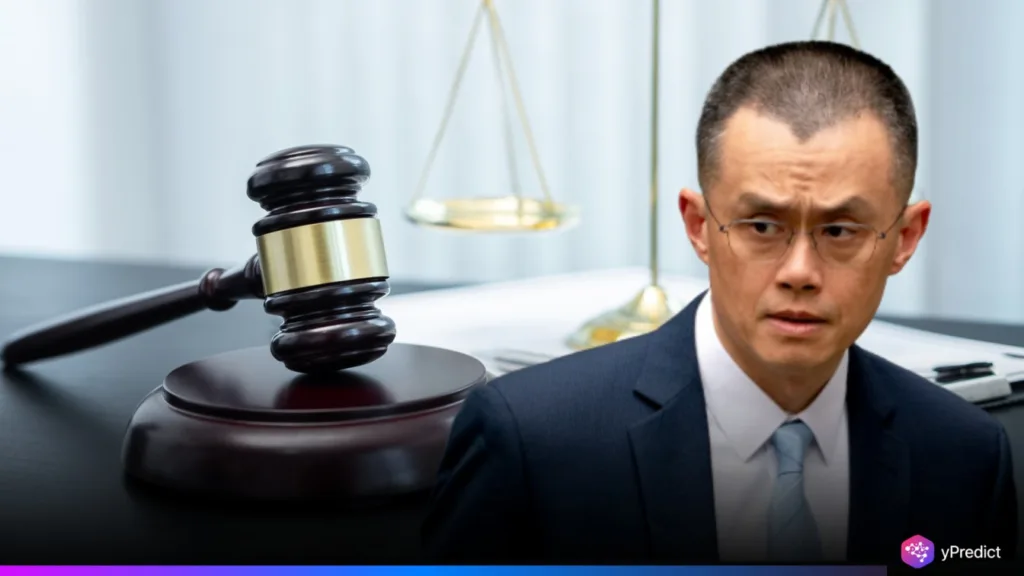
Changpeng Zhao, also known as CZ, has once again captured headlines with a possible lawsuit against Bloomberg. All the while, the former Chief Strategy Officer for Bloomberg was facing backlash over media reports concerning CZ’s legal history and the operations of Binance, CZ’s cryptocurrency and digital asset company. His indication that he might sue represents another aspect of a large scale trend seen in 2025, that crypto leaders are confronting what they call biased and non-verified media coverage. The fundamental facet of this issue, is the poor trust in crypto journalism, especially now that artificial intelligence driven narratives may help to amplify more pessimistic levels of public belief.
CZ Lawsuit Escalates Binance Controversy
The CZ lawsuit is a new to the long-running controversy. In 2024 US regulators sentenced Zhao to four months in prison for a case of money laundering with case of still affecting public perception; more recently, Nigeria rejected bribery allegations embroiling Binance into more global controversy. Now CZ plans to file a lawsuit against Bloomberg for defamation.
Sources with knowledge of the situation have indicated Zhao feels the media has portrayed him in misleading ways that damaged the reputation of Binance. Given the timing of the pursuit, this lawsuit clearly shows that Binance wants to retake the public narrative around its own case. It also comes as Binance collectively reacts with a series of defensive PR moves calling out mainstream media for overblowing the existential risks or concerns with cryptocurrency.
Crypto Journalism Faces AI-Driven Pressure
As AI tools increasingly define the global information cycle, we find the landscape we work in as crypto journalists more complicated. Zhao’s case comes during a global reckoning for journalists who cover decentralized finance and blockchain regulation. The cases of Shang Mugen and Chen Shiling demonstrate the speed at which AI generated or AI-influenced content can be disseminated when it has not been peer reviewed for its credibility. When AI signals from different publishing outlets combine with experimentation to determine headlines optimized for traffic instead of accuracy, the line between journalism and speculation or rumor becomes blurred.
CZ and others have been outlining how media outlets perpetuate fear, uncertainty and doubt – otherwise known as (FUD) independently of facts. If media outlets falsely shape institutional behavior on crypto assets and this spreads misinformation, they will ultimately diminish their own authority and legitimacy in reporting, and potentially deeper levels of misinformation can spiral from the public’s trust level declining, especially when AI models programmed on initial datasets use skewed data as inputs that replicate biases.
Defamation Lawsuits Become Industry Strategy
Zhao’s new litigious act is indicative of a larger pattern: the cryptocurrency moguls are engaging in defamation lawsuit as weapons in the call for accountability. Critics claim the method is chilling for journalists, while proponents claim it is rightful accountability.The CZ lawsuit draws attention to how reputations in the crypto industry suffer from unchecked narratives—often driven by sensational AI-driven headlines rather than evidence.
Zhao has publicly supported other defamation cases, helping fund legal battles to push back against what he calls “lazy reporting.” His team believes courts must now intervene to set clearer boundaries between fair coverage and reputational harm. This signals a tactical shift among crypto leaders who believe media oversight has failed to evolve alongside AI-powered news distribution.
AI’s Role in Shaping Regulatory Opinion
Artificial intelligence doesn’t just affect media, it influences how regulators respond to public sentiment. States like Connecticut have moved to restrict digital asset investments, citing concerns amplified by media coverage. CZ argues that biased AI narratives can distort policymaker judgment, especially in markets that rely heavily on sentiment-driven regulation.
By suing Bloomberg, Zhao is not only defending Binance but also challenging the way AI-augmented media reports on cryptocurrency. Legal scholars believe this may set new precedents around AI’s impacts on journalism in the courts generally. If successful, the CZ lawsuit could compel publishers to create stricter mechanisms for fact-checking, particularly for AI-created or AI-edited content with implications for high-risk industries.






